Ask AI on The Internet
Question: 1. Decolonisation (Education) An active process to change the Western-dominated philosophy and approach to education to a balanced approach where indigenous knowledge and pedagogies are acknowledged and genuinely incorporated into the formal educational system. Multiple perspectives are included to make education relevant and practical to address needs and challenges within specific contexts. (Owuor:2007) Principles: Mkabela – An African approach to education Own understanding of the concept and examples of implementation and teaching practice.
Decolonization in education is a transformative process aimed at disrupting and reshaping the traditional Western-dominated frameworks and philosophies that have long governed educational systems. The goal is to create a more inclusive, balanced, and holistic approach to education by integrating indigenous knowledge systems, perspectives, and teaching pedagogies. The central idea is to make education more relevant, equitable, and capable of addressing local needs and challenges by honoring and incorporating the rich cultural heritage and wisdom of indigenous communities. ### Key Principles: Mkabela's African Approach to Education Dr. Queeneth Mkabela emphasizes the importance of an African-centered approach to education, which acknowledges and utilizes African ways of knowing, teaching, and learning. The key principles include: 1. **Cultural Relevance**: Education should reflect and respect the cultural context of the learners. This means incorporating local traditions, languages, and histories into the curriculum. 2. **Holistic Learning**: Education should address the intellectual, emotional, spiritual, and physical aspects of learners. This is a departure from solely cognitive-focused Western systems. 3. **Community Involvement**: Learning should be community-oriented, involving elders and other community members in the educational process to provide mentorship and share knowledge. 4. **Relational Education**: Emphasizes relationships among learners, teachers, and the community. Education is seen as a collective responsibility. 5. **Practical and Contextual Application**: Knowledge and skills taught should be directly applicable to solving real-life challenges in the local context. ### Own Understanding and Examples of Implementation Understanding decolonization in education involves recognizing the undervaluing of non-Western knowledge systems and the need to actively integrate and legitimize these within formal education. It’s about creating spaces where diverse worldviews coexist and inform educational practices. #### Examples of Implementation and Teaching Practices: 1. **Curriculum Revision**: Revising curricula to include indigenous histories, knowledge, and perspectives alongside Western content. For instance, a history curriculum that includes accounts and viewpoints from local indigenous communities. 2. **Language Inclusion**: Promoting and incorporating indigenous languages in teaching and learning processes. For example, offering courses or modules in indigenous languages or using these languages as mediums of instruction. 3. **Community-Based Learning Projects**: Involving students in community projects where they learn through participation in local traditions and problem-solving activities that benefit their communities. For example, a biodiversity conservation project led by local tribal leaders. 4. **Teacher Training**: Equipping educators with the skills and knowledge to teach from a decolonized perspective. This includes training on cultural sensitivity, indigenous pedagogies, and local histories. 5. **Collaborative Research**: Encouraging research that involves and benefits indigenous communities. For instance, collaborative studies that address local health issues and include traditional healing practices. 6. **Cultural Exchange Programs**: Creating opportunities for cultural exchange where students and teachers learn about and from different cultural systems. This could be through exchange visits, collaborative projects, or guest lectures by indigenous knowledge keepers. By adopting such practices, education systems can move towards a more inclusive, equitable, and contextually relevant approach that values and integrates the rich diversity of knowledge existing within various cultural frameworks.
Think your answer is better than the AI's? Post it below.
Other Most Relevant Posts:
Question Tags
If you want your question answered by an AI, click here.
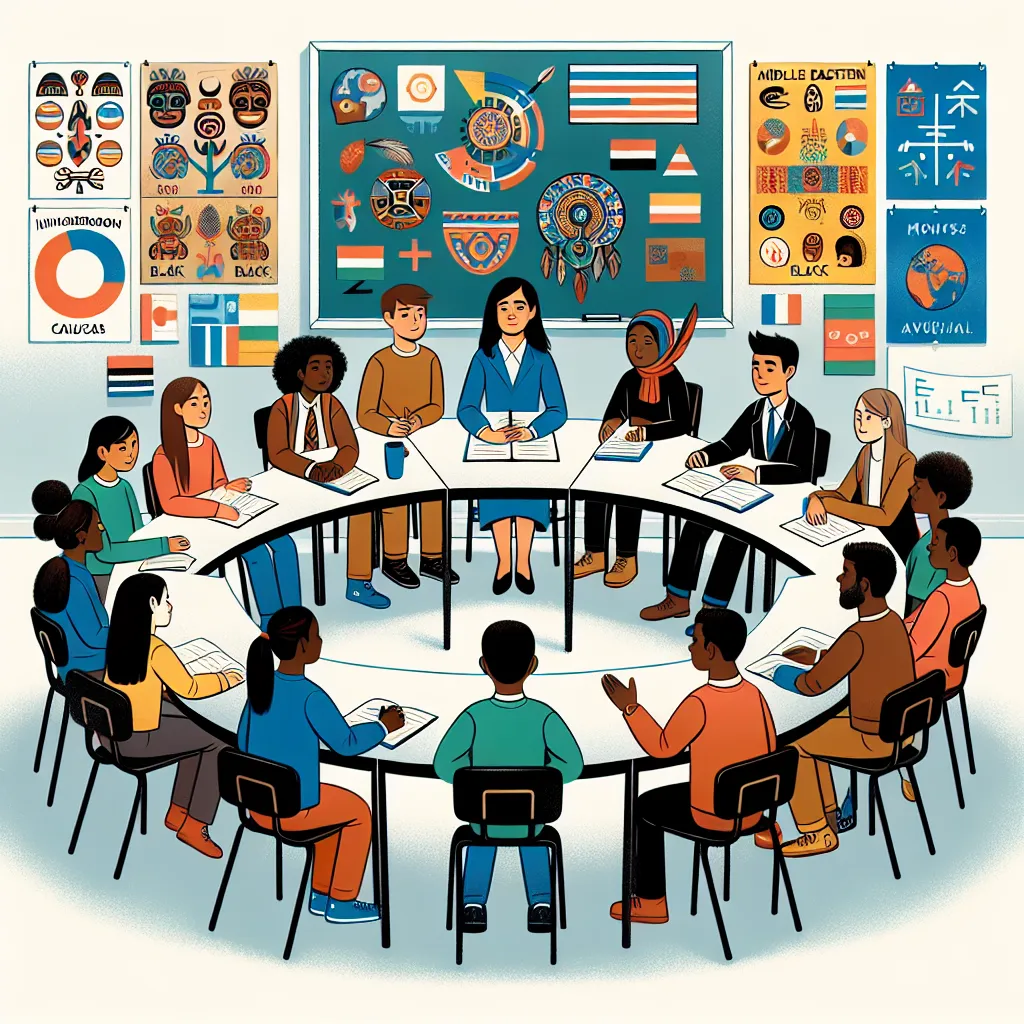
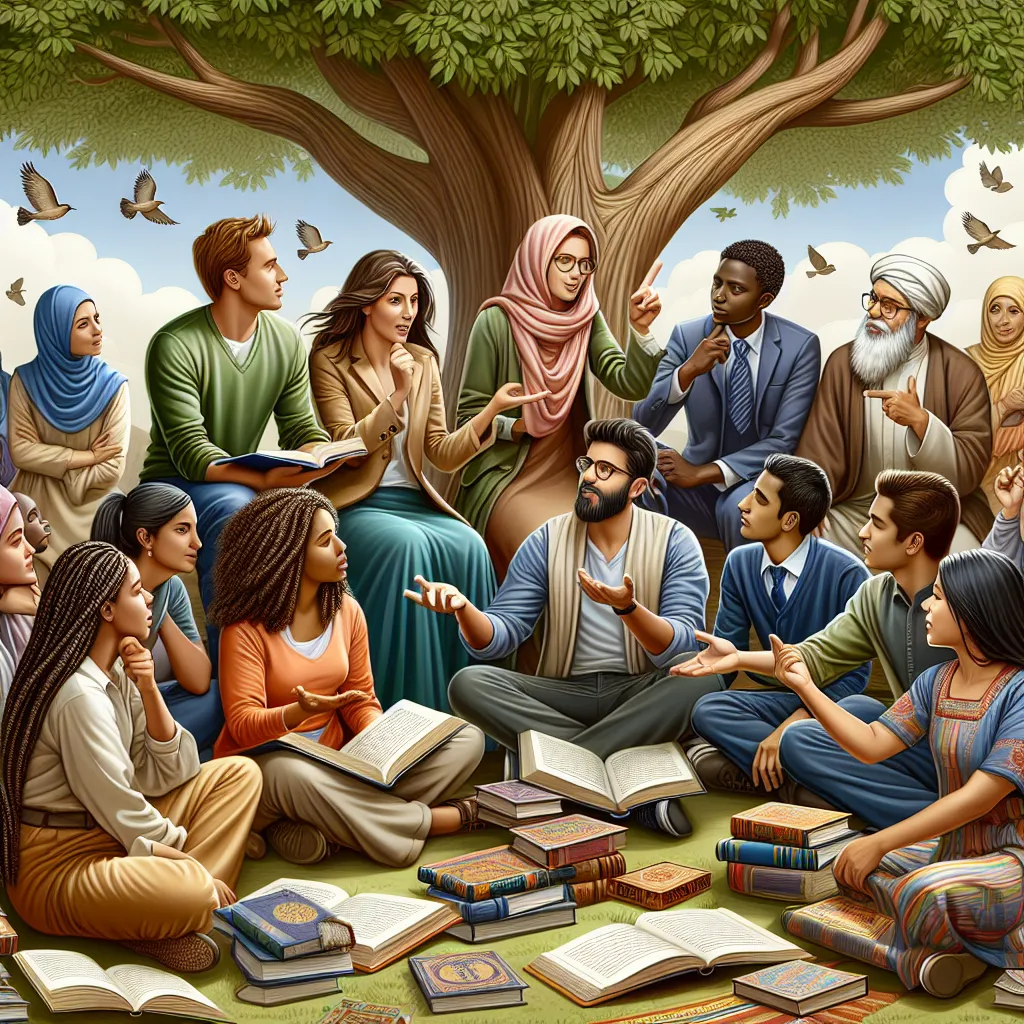
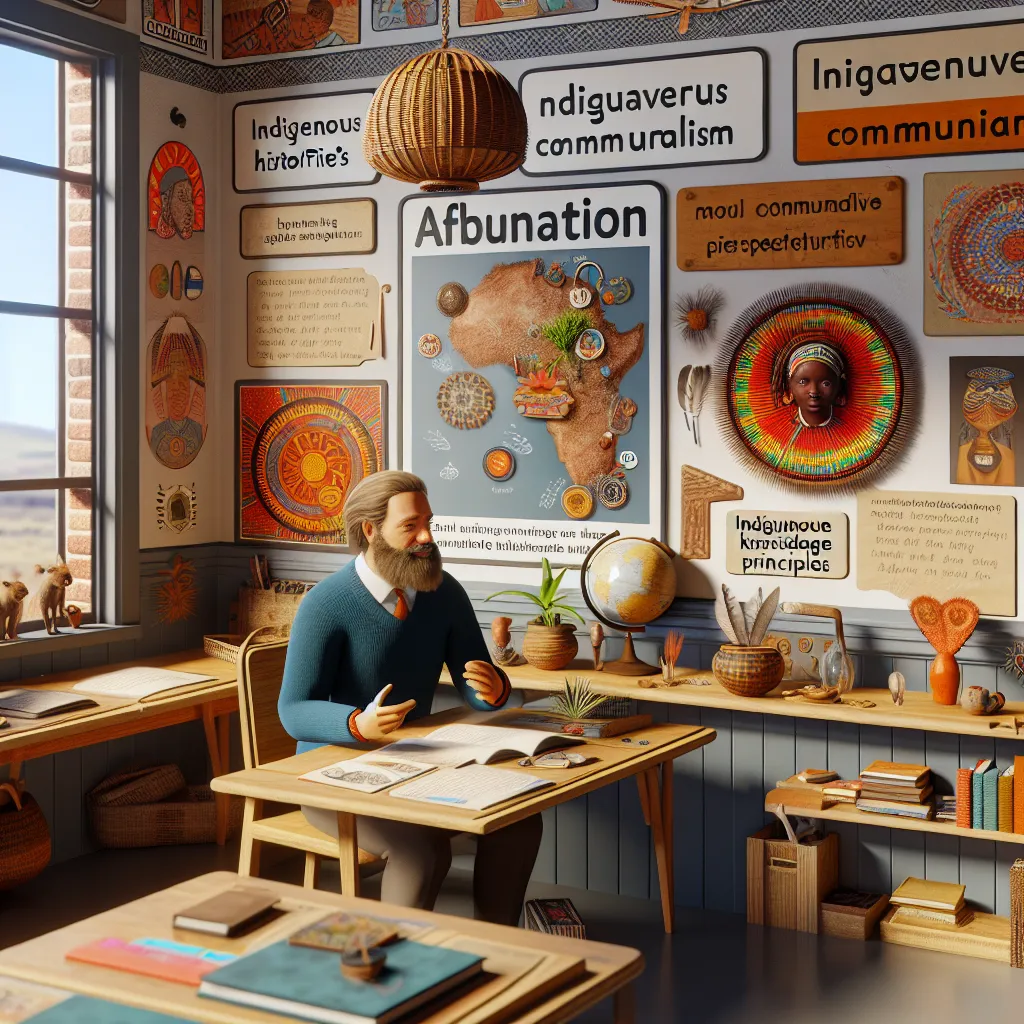
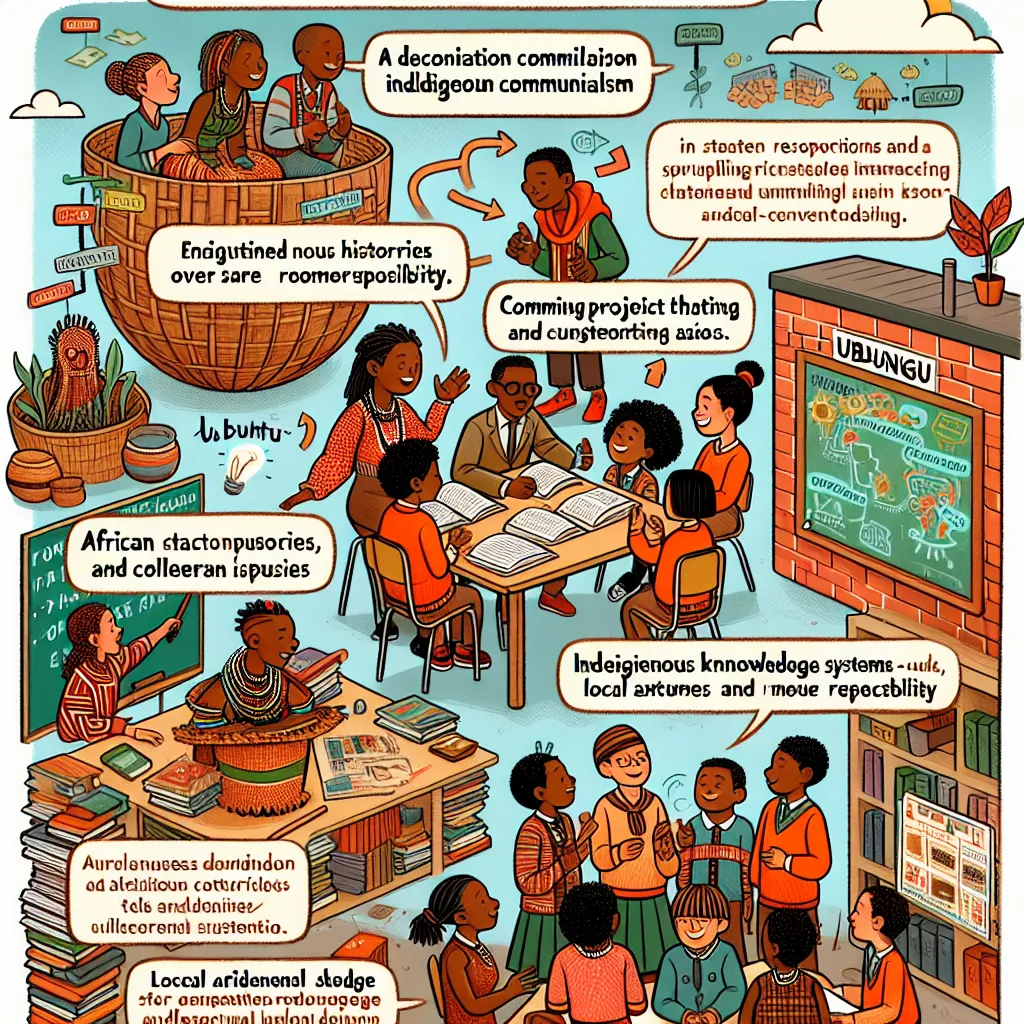
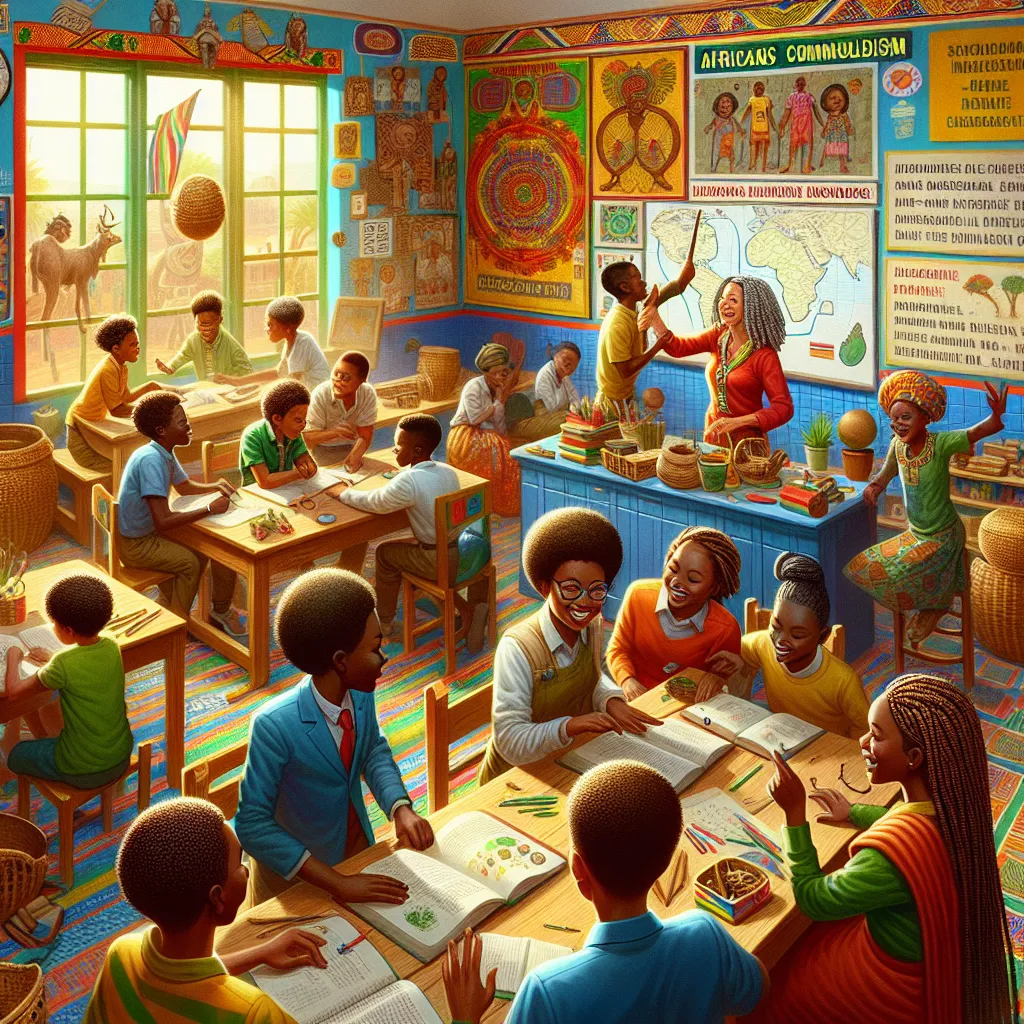
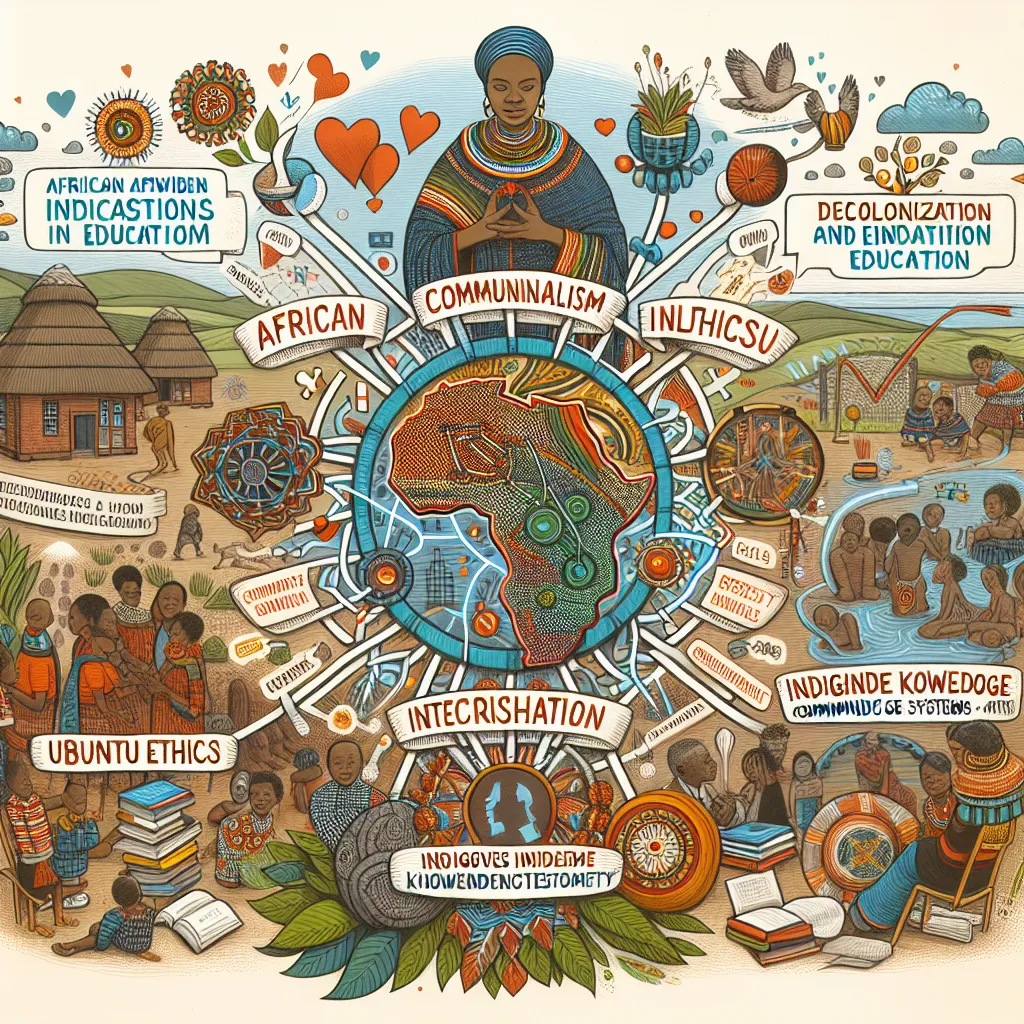
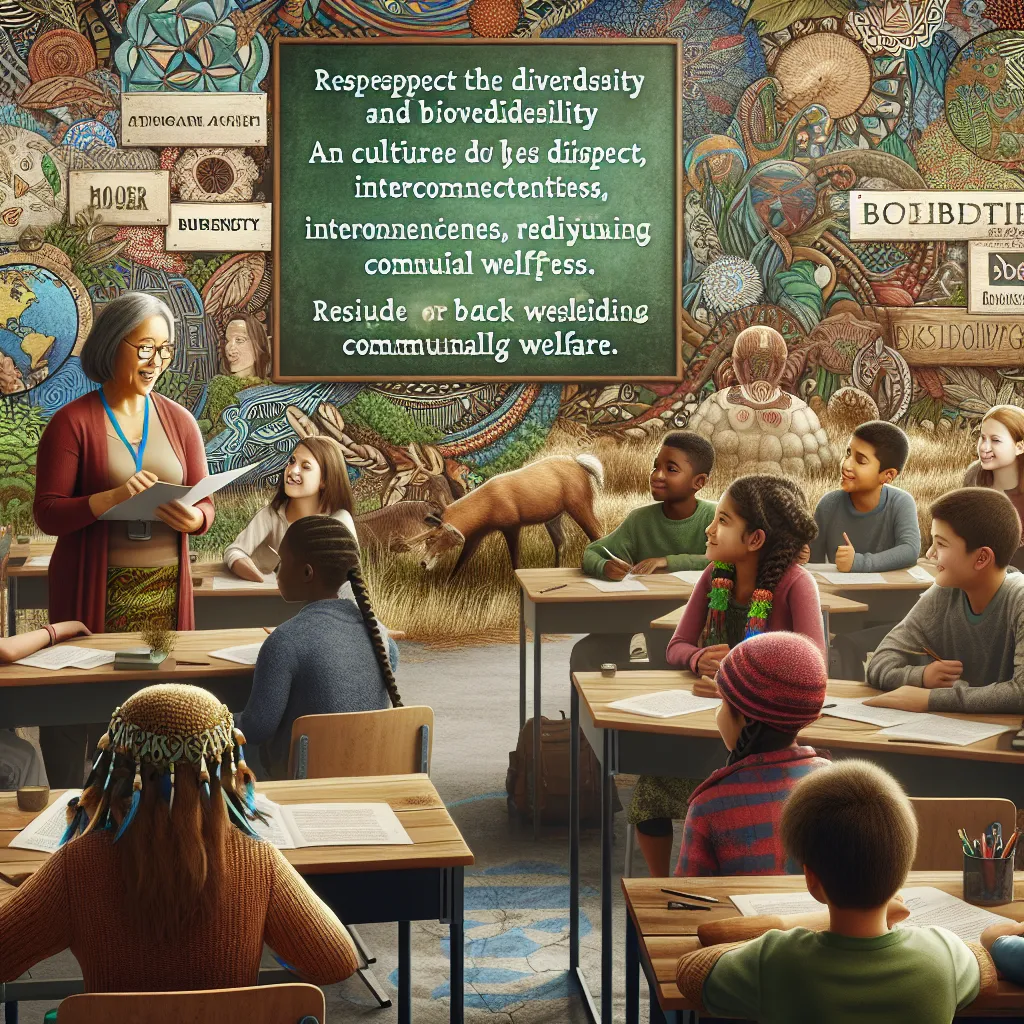
Post your own comment: